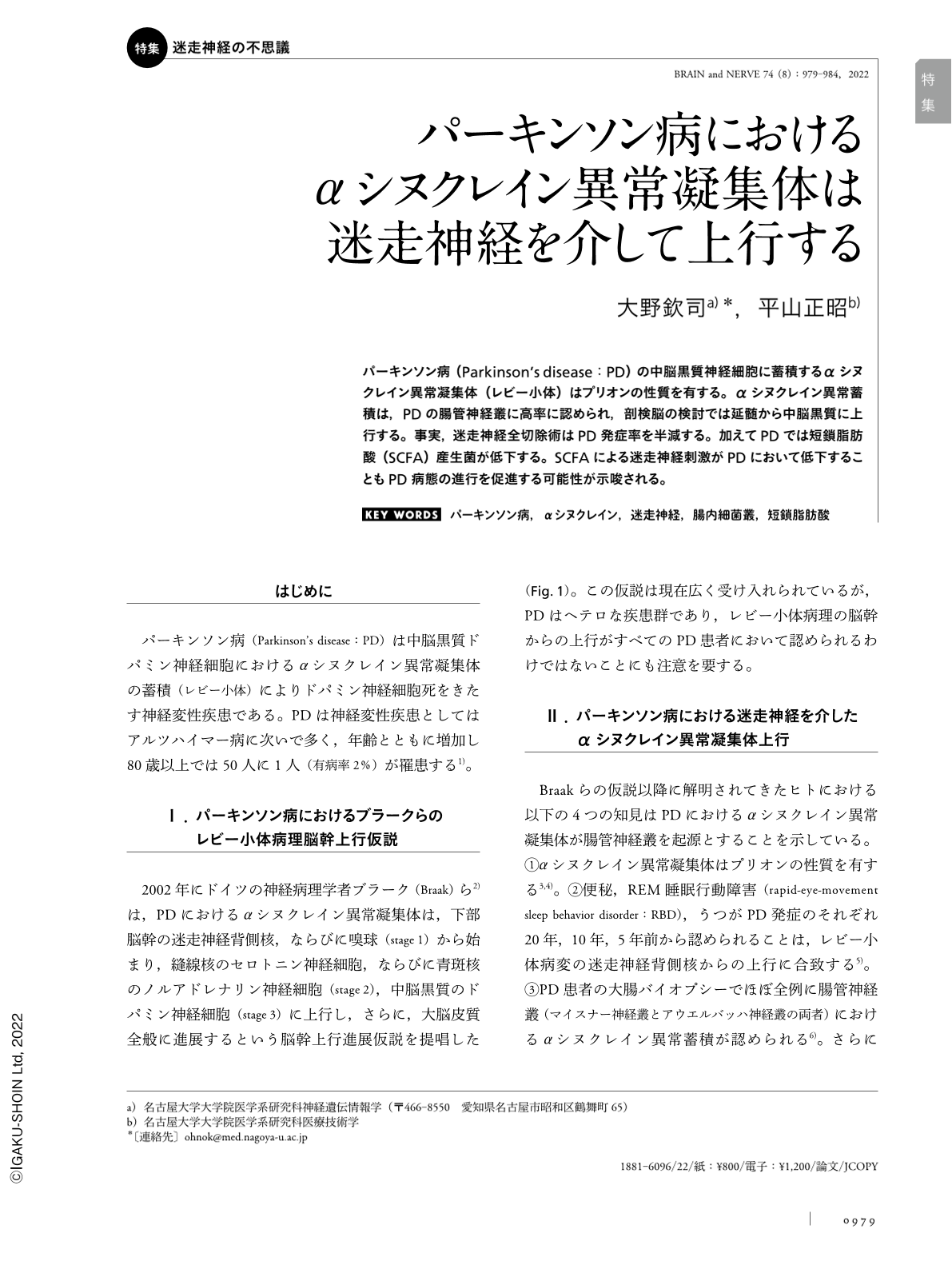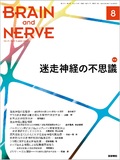Japanese
English
- 有料閲覧
- Abstract 文献概要
- 1ページ目 Look Inside
- 参考文献 Reference
パーキンソン病(Parkinson's disease:PD)の中脳黒質神経細胞に蓄積するαシヌクレイン異常凝集体(レビー小体)はプリオンの性質を有する。αシヌクレイン異常蓄積は,PDの腸管神経叢に高率に認められ,剖検脳の検討では延髄から中脳黒質に上行する。事実,迷走神経全切除術はPD発症率を半減する。加えてPDでは短鎖脂肪酸(SCFA)産生菌が低下する。SCFAによる迷走神経刺激がPDにおいて低下することもPD病態の進行を促進する可能性が示唆される。
Abstract
Parkinson's disease (PD) is caused by the abnormal accumulation of α-synuclein fibrils (Lewy bodies) in the substantia nigra. The α-synuclein fibrils behave like prions. Autopsy shows that α-synucleinopathy ascends from the brain stem to the substantia nigra. In patients with PD, the α-synuclein pathology is frequently observed in the intestinal neural plexus. In animal models, injection of α-synuclein fibrils in the gastric wall or the peritoneum caused immunostaining for aggregated α-synuclein fibrils in the substantia nigra. In Finland and Sweden, truncal vagotomy, but not partial vagotomy, reduced the chance of developing PD to 50% in 35 years. Of note, not all patients with PD show ascending α-synuclein pathology in the brain and that truncal vagotomy reduced the chance of developing PD to half. Thus, α-synucleinopathy is likely to start from the intestinal neural plexus and ascends through the vagal nerve to the substantia nigra in at least 50% of patients with PD. Additionally, short-chain fatty acids (SCFA)-producing intestinal bacteria are reduced in PD. Although the underlying mechanisms are currently under investigation, the vagal nerve also senses SCFA and transmits signals to the central nervous system. This pathway is likely to be compromised by gut dysbiosis in PD.

Copyright © 2022, Igaku-Shoin Ltd. All rights reserved.


